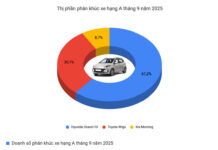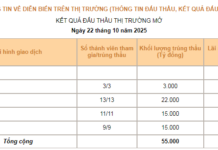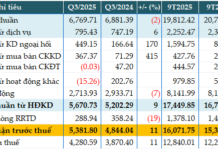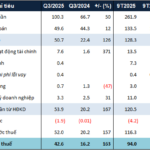Retirement pension is another term for the pension regime under the social insurance policy, which helps workers ensure that they have the financial means to cover basic living needs and healthcare when they grow old, contributing to overcoming difficulties and illnesses.
Over the years, the state has repeatedly adjusted pensions to ensure a living for the beneficiaries. However, the resolution on the state budget estimate for 2025, passed by the National Assembly, stated a policy of no increase in public sector salaries, pensions, or allowances in 2025, causing concern among those approaching retirement age and those already receiving pensions. The current pension level is insufficient to maintain the standard of living for beneficiaries, especially given the current economic challenges.
In this context, many people of working age, approaching retirement, and with long-term social insurance participation are unsure whether to choose to withdraw their social insurance once or wait to receive a pension.

Illustrative image
Take the case of Mr. D., who is currently 60 years and 4 months old and has 39 years of social insurance participation. He will retire in December 2025, according to regulations (at 61 years and 3 months of age). However, his current health condition prevents him from continuing to work, and he wishes to retire early and wait to receive his pension.
Mr. D. wonders if he will be subject to a reduction in his pension entitlement if he retires early. Alternatively, if he continues to work until retirement age, will he be eligible for unemployment benefits before retiring? And what will be the amount of his pension if he retires at the standard retirement age?
Are Unemployment Benefits Available When Reaching Retirement Age?
According to Article 49 of the Employment Law 2013, an insured person is eligible for unemployment benefits if they meet all four following conditions:
– The labor contract has been terminated, except in cases: Unilaterally terminating the labor contract in violation of the law; Receiving a pension or monthly loss of working capacity allowance.
– Has paid unemployment insurance for at least 12 months within the last 24 months before the labor contract termination.
– Submitted the dossier for unemployment benefit claim to the job service center within three months from the date of labor contract termination.
– Has not found a job after 15 days,…
Based on the above provisions, it can be concluded that unemployment insurance will not pay unemployment benefits to those receiving a pension.
However, if a worker has reached retirement age but does not meet the conditions to receive a pension, they can still receive unemployment benefits.
In summary, in the case of Mr. D., if he continues to work until retirement, he will not be eligible for unemployment benefits because he already meets the conditions to receive a pension (retirement age and 20 years of social insurance participation).
Mr. D. will only be entitled to unemployment benefits if he meets the following conditions: Termination of the labor contract before the prescribed retirement age; Payment of unemployment insurance for at least 12 months within the last 24 months before the termination of the labor contract; Submission of the dossier for unemployment benefit claim to the job service center within three months from the date of labor contract termination; Failure to find a job after 15 days from the date of dossier submission.

Illustrative image
Pension for Over 35 Years of Social Insurance Participation
If Mr. D. retires in December 2025, his pension rate will be calculated according to the Social Insurance Law 2024.
According to Articles 66 and 72 of the Social Insurance Law 2024, the monthly pension amount for compulsory social insurance participants is calculated using the following formula:
Monthly pension amount = (Pension entitlement rate) x (Average monthly salary for social insurance contribution)
Where:
(1) The monthly pension entitlement rate is calculated as follows:
– For women: The monthly pension entitlement rate is calculated at 45% for 15 years of social insurance participation, with an additional 2% for each additional year of contribution, up to a maximum of 75%.
– For men: The monthly pension entitlement rate is calculated at 45% for 15 years of social insurance participation, with an additional 2% for each additional year of contribution, up to a maximum of 75%.
Thus, with 40 years of social insurance participation, Mr. D.’s pension entitlement rate reaches the maximum of 75%.
(The specific pension amount will depend on the average monthly salary for social insurance contribution of Mr. D.)
Consequently, Mr. D. has an “excess” of five years of social insurance contribution; the surplus years will be considered for a one-time allowance (meaning he will receive both a pension and a one-time allowance).
Article 68 of the Social Insurance Law 2024 stipulates:
– For those receiving a retirement pension at the retirement age: The one-time allowance is equal to 0.5 times the average monthly salary for social insurance contribution for each year of contribution exceeding the prescribed period until retirement age.
– For those who continue to participate in social insurance after meeting the retirement conditions: The allowance is equal to two times the average monthly salary for social insurance contribution for each year of contribution exceeding the prescribed period.
Therefore, Mr. D. will receive a one-time allowance of 2.5 months’ salary for social insurance contribution.
If Mr. D. wishes to retire early, according to the above regulations, from July 1, 2025, each year of early retirement will result in a 2% reduction in the pension, with no reduction if retiring less than six months early, and a 1% reduction if retiring between six and 12 months early.
Proposed State Support for Voluntary Insurance Contributions of up to 50%
The Ministry of Labour, Invalids and Social Affairs has proposed two schemes for state support for voluntary social insurance contributions, with the highest support level reaching 50%.












































